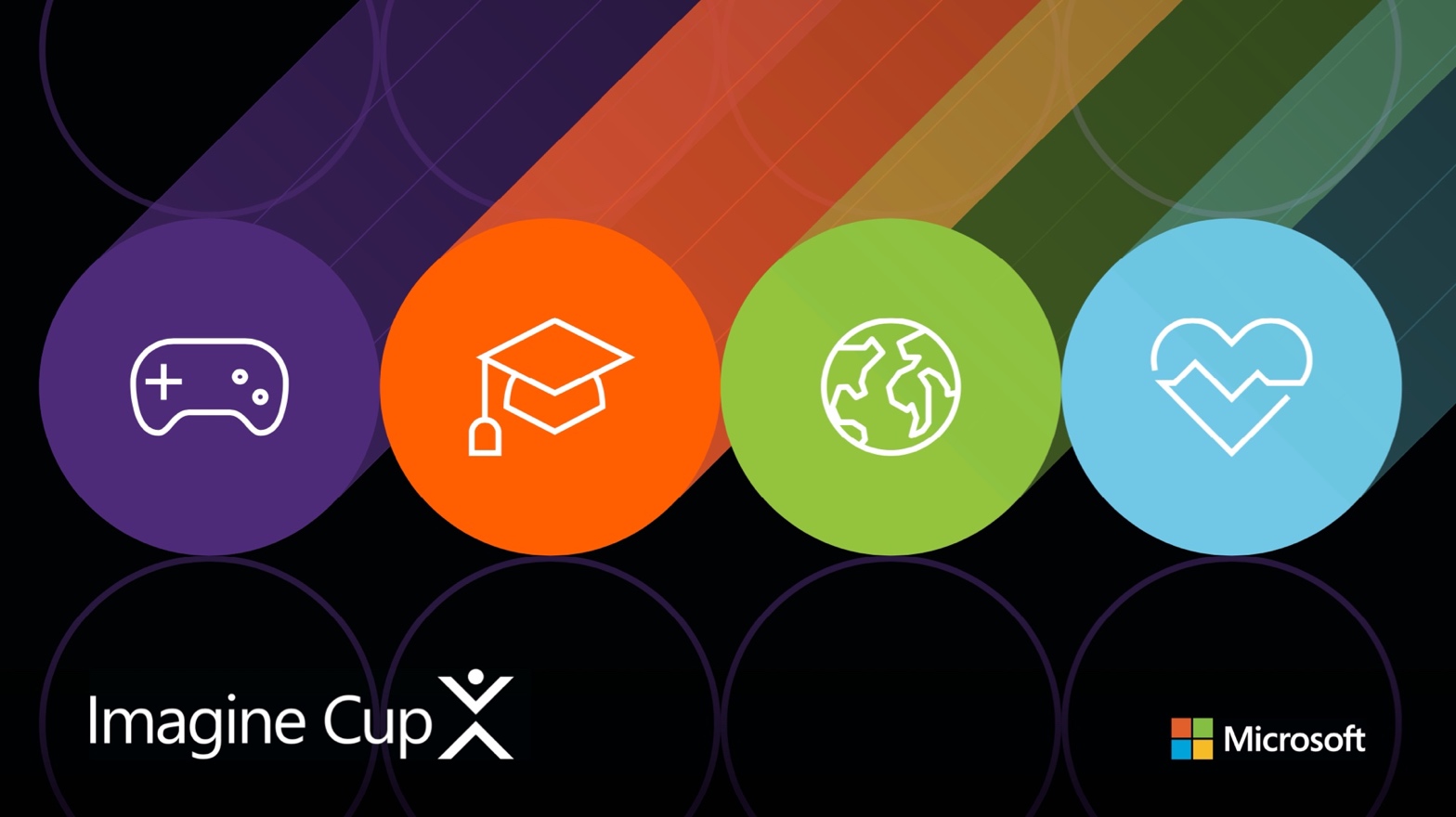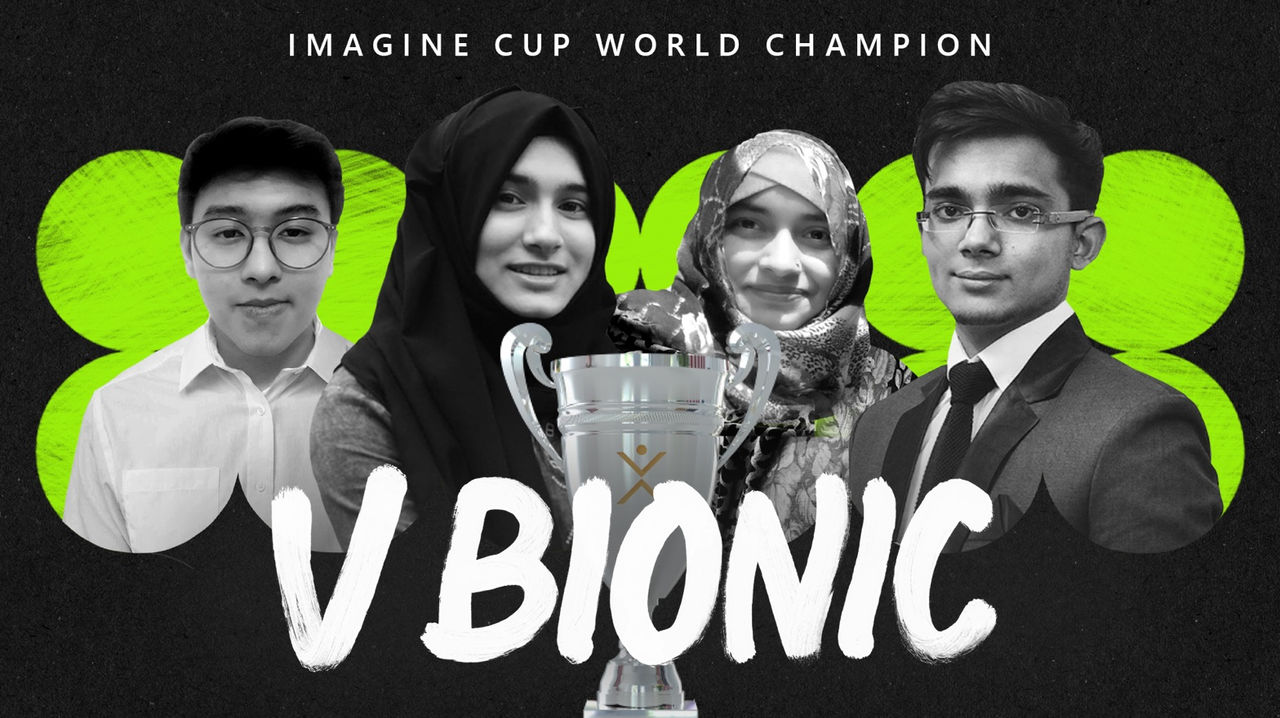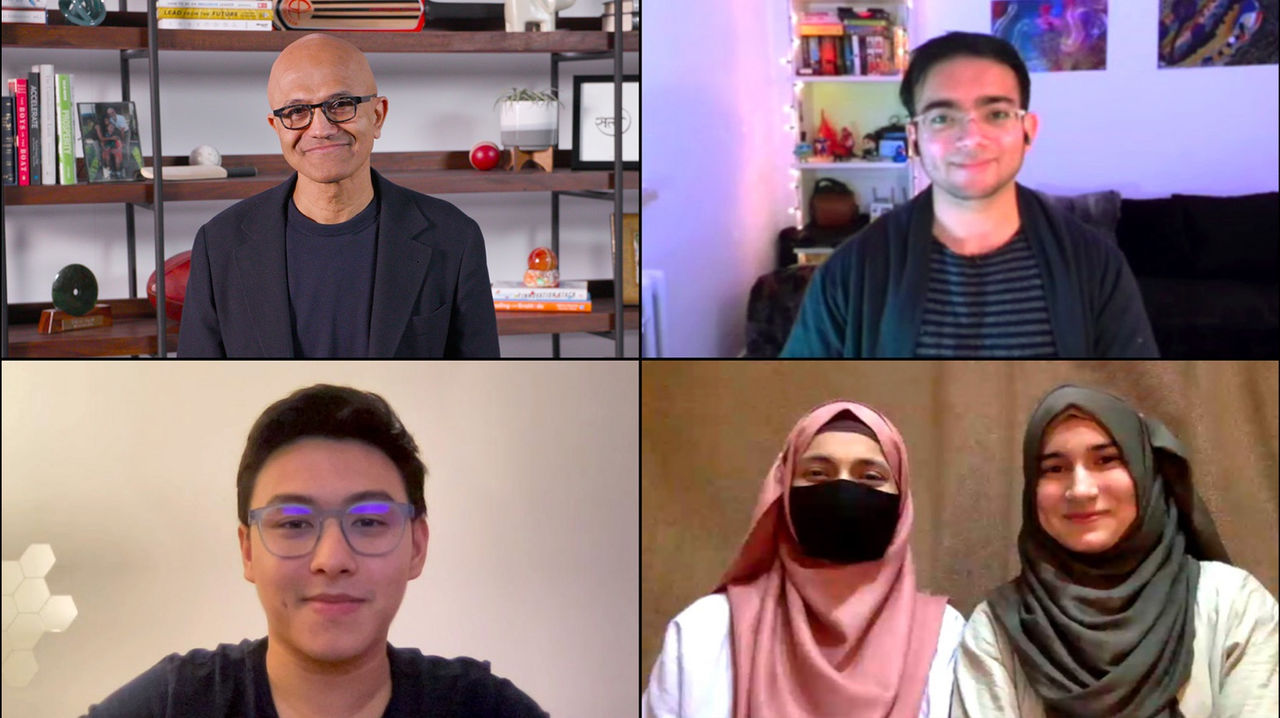Bring your game-changing idea to life at Imagine Cup 2023
Dream It. Build It. Live It. Learn how to register for Imagine Cup 2023 and check in with the 2022 champions for advice about the competition.

As we enter 2023 it’s time once again for the Imagine Cup!
Imagine Cup is Microsoft's premier technology and innovation competition for students. Each year, students show us what’s possible as they transform their ideas into action with Microsoft Azure technologies. Competitors join a global community and build together with students from around the world to create world-changing projects in one of four competition categories: Earth, Education, Health, and Lifestyle. This year, students will be challenged to step further into their entrepreneurial side and focus on innovative uses of Azure technology, accessibility and inclusion, and marketability as a business idea.
Last year, gaming projects took the stage in all rounds of the competition. With over three billion people playing games, gaming has the power to bring people together across geographies, cultures, and demographics all over the world. This year it’s exciting to see even more gaming submissions from countries around the world such as Chile, India, Kazakhstan, Nigeria, Thailand, and the United States. Their projects range from new games to fit different lifestyles to educational games that will inspire young students to learn more about climate change, teach young drivers the rules of the road, or increase interest in studying technology.
The 2023 Imagine Cup World Champion will be crowned in May, with the winning team taking home the grand prize of $100,000 USD, a Microsoft Azure grant, and a mentoring session with Microsoft Chairman and CEO, Satya Nadella.
There is still time to enter! You can register here and those participating in online semifinals have until January 27, 2023 to submit their project idea. For more information on submission requirements go here.
Good luck on your journey! Keep reading to get expert advice from last year’s champions: Zain Samdani, Ramin Udash, Faria Zubair, and Asfia Zubair of Team V Bionic and learn about their progress on ExoHeal, an exoskeleton aimed at providing rehabilitation to patients with hand paralysis.

Happy New Year! Since winning Imagine Cup 2022, what opportunities and growth has your business experienced?
Zain: Over the summer we spent a lot of time interacting with people in the industry to get a better understanding of what’s required to run a medical startup. We participated in startup weekends in Germany to learn about the startup culture here and how to be successful. In early November we attended Medica, the world’s largest medical trade fair, and spoke with people from companies in the rehabilitation space and medical equipment manufacturing. We made important contacts who have given us advice on manufacturing, medical trials, and device marketing and sales.
Faria: Recently we had a fair here [Saudi Arabia] too – Modest Fashion Week. We connected with a few young entrepreneurs who are working with sustainable materials that we hope to apply to our designs to make them more eco-friendly. We want to do our part to help humanity and the environment. I also want to make our device look more like a fashion accessory, rather than a medical device, so patients will wear it with more comfort, enthusiasm, and regularity.
Zain: There has been a lot of interest in our device. We’ve determined it will take about two years to bring ExoHeal fully to market. In the meantime, we want to help patients sooner, so we’re expanding our team and establishing an online community. The ExoHeal app was always going to include exercises and mental health activities to keep people motivated and build their self-esteem, some of which do not require the robotic exoskeleton. We decided to move forward with those pieces more quickly so people can start benefitting from them and get familiar with the app.
Right now, we’re finalizing our design and focused on developing our manufacturer prototype and looking into the patent process.
That’s amazing how you were able to take your idea and Imagine Cup project and jumpstart your business. How do you balance all of that with being a full-time student?
Zain: That is a fantastic question. I try to finish all my schoolwork by 6 PM and after that I give as much of my time as possible to the startup. I also keep my weekends free except when there is a need to travel.
What was the biggest benefit from participating in Imagine Cup?
Ramin: One of the most crucial parts of our Imagine Cup journey was the mentorship sessions. They helped us identify problems and solutions within our project, and really helped us refine everything about our ideas. As we progressed in the competition, we also had several reactor sessions and different rehearsals where we got feedback on pitching our product idea.
Zain: The mentorship session with Satya Nadella, which was such a bonus as a prize, was one of the most cherished and valuable moments for us. It was so inspiring to meet with him. His guidance, advice, and support for our startup instilled us with hope. His encouragement and life experiences were invaluable. We are humbled we had the opportunity to meet him.

Game Creators also have to pitch their game ideas – what is your one piece of advice for pitching an idea?
Zain: Try and focus on that one value that you’re delivering, the core of your MVP (minimum viable product) and tell as much of a story as you can. We worked on the project for so long that sometimes we lost sight of the fact that this information was once new to us – and it is new for the people we’re pitching to. Getting feedback helped us understand if we were conveying the right message and narrow down our focus until people understood our core message and the key value of our product.
Can you tell me about your experience innovating on the Microsoft Cloud?
Ramin: I was not very familiar with Azure at the start of the project, but Azure services are pretty easy to get started with. The documentation is great, and the services are easy to connect. There are so many areas of Azure services – storage, AI models, machine learning, Power BI, IoT – and everything is available on the same platform with a single dashboard that makes it easy to view and connect all the data. That’s one of the best parts about Azure.
How has Imagine Cup helped you contribute to the world in a positive way?
Asfia: Imagine Cup shined a light on our project and gave us opportunities to learn about many new technologies, make new connections, and get advice from different advisors. I am a patient counselor at ExoHeal and studying Psychology as part of my Master of Education degree. I interacted with doctors and patients to understand the different types of therapy required for rehabilitation and helped determine how ExoHeal can bring hope and positivity to their lives. We are blessed with a very empathetic team, and with this additional input we were able to consider even more perspectives and better understand patient pain and the pain of their loved ones. This gave us even more motivation to continue our research and improve our project to help the most people possible.
What additional plans do you have for ExoHeal?
Ramin: In the future, after we’ve finalized the initial product prototypes, we would like to use Azure Digital Twins to bring our app to Microsoft HoloLens. The simulated environment will allow patients to complete more intensive tasks, such as typing or writing, in a way that feels more successful and realistic, building on and improving their neuroplasticity to create greater patient benefit.
What is your next step with Microsoft after Imagine Cup?
Zain: We recently enrolled in Microsoft for Startups Founder Hub. The Imagine Cup team is helping us through the application process.
Do you have any final thoughts for this year’s Imagine Cup competitors?
Zain: Have a clear vision of how you are helping people through your project, give it your best, and make sure all of your efforts contribute to making that vision come true.
Ramin: Learn how to tell your story. Some of the Imagine Cup projects are really complex, and if you can’t tell your story in a way that people understand the benefits and vision clearly, it won’t impact the people listening.
Faria: The mentoring sessions helped us tell our story better, but online research also helped. We looked at past Imagine Cup projects and winners to learn how they told their stories and pitched their products. And remember, if you believe in yourself and your ideas, whether big or small, you will succeed one day.
Asfia: You can have your dream come true. Dream big.
More about Azure and Gaming
Accelerate your game development in the cloud with the ID@Azure program. ID@Azure empowers independent studios and start-up game developers to take full advantage of the cloud to build and grow their games. By joining the program, you get free access to developer tools and support from industry experts. Find out more at www.azure.com/ID.
